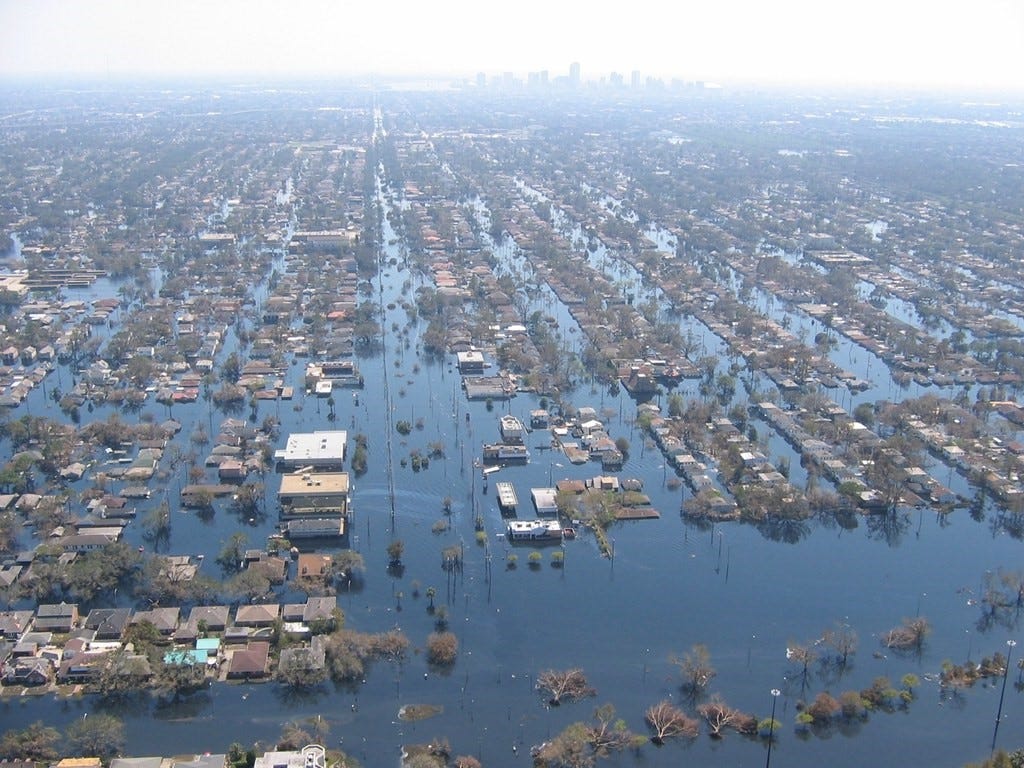
An event hosted last week by the Mental Health and Psycho-Social Support (MHPSS) Research Network at the London School of Hygiene and Tropical Medicine (LSHTM) explored the mental health and psychosocial outcomes of people who have to leave where they live as a result of climate-related events.
Climate-related displacement is sometimes the result of dramatic individual events, such as flooding, wildfires or damage caused by extreme weather like a hurricane, but it can also be the result of slower changes to an area that create water or food insecurity.
Mental health and environmental migrants – a systematic review
Emmanuela Osei-Asemani presented the results of a systematic review of published research on the subject of mental health issues affecting environmental migrants.
There are significant gaps in the available evidence. Of 78 studies appropriate for inclusion in the review (covering over a million people), 57 were conducted in North America and none in Africa. The majority of people covered by the studies were internally displaced (i.e. had not moved to another country), and most as a result of hurricanes. (A recent report from the US Census Bureau estimated that 2.5 million people were displaced by weather-related disasters in the US in 2023.)
The review found that in the displaced populations, post-traumatic stress disorder (PTSD), depression and anxiety were all more common than in the general population. Psychological distress was found to persist, with higher levels reported in some studies five years after the displacement.
A variety of factors were identified as influencing mental health outcomes, including how far people were displaced and for how long; and demographic factors such as gender, ethnicity, age and socioeconomic status.
The need for action on mental health
The World Health Organization (WHO) recognises the impact of climate change on mental health. In its 2022 policy brief on the subject, it acknowledges the lack of research evidence, but states, “There are gaps in understanding the impact of climate change on mental health and psychosocial wellbeing, but current knowledge is sufficient to act!”
Dr Brandon Gray, representing the Department of Mental Health and Substance Use at WHO, charted the route from research to policy and practice on mental health and climate change and highlighted five key recommendations from the WHO policy brief.
1. Support global, regional and national initiatives to integrate mental health and psychosocial support (MHPSS) and disaster risk reduction.
2. Integrate MHPSS within policies and programmes dealing with climate change and health.
3. Build on global commitments such as the sustainable development goals (SDGs), the Paris Agreement, and the Sendai Framework for Disaster Risk Reduction.
4. Develop and implement multisectoral and community-based mental health systems to address current and future needs.
5. Address the large gaps that exist in funding for mental health and for the health impacts of climate change.
The impact on children
Dr Lynne Jones shared her experience as a child and adolescent psychiatrist working in disaster zones, with a focus on mothers and babies.
She recommended a recent working paper, published by the Center on the Developing Child, which sets out the effects of extreme heat on early childhood development and health.
There are multiple effects, including heat in pregnancy impacting the developing brain, and the effect of dehydration and stress. Displacement and extreme weather events are often tied to loss – loss of land and loss of people – and Dr Jones highlighted the profound impact of grief and loss on children and carers.
There are also mental health effects of some vector-borne diseases, such as depression and memory loss in West Nile virus.
Taken in the round, Dr Jones made the case that the climate and ecological crises are an adverse childhood experience (ACE), disrupting nurturing care and increasing toxic stress. Stressed caregivers are less responsive, education is disrupted, plus a lack of food, water and health care: all these things lead to excessive or toxic stress, which results in poorer physical and mental health outcomes into adulthood.
A systems thinking approach
Dr Jura Augustinavicius of McGill University discussed approaching climate change, migration and mental health from a systems thinking perspective. This is a process used to understand how many different factors connect to each other dynamically.
Climate change migration and mental health connect with a wide range of factors, from extreme weather events and conflicts, through to individual socioeconomic and physical health factors. Climate change disrupts the connection to land and can create a level of ecological grief; food insecurity is increasing as a result of climate breakdown; migration creates stressors such as family separation and lack of resources. Many aspects shape climate-related migration and mental health and also influence the circumstances of people who do not move from a place impacted by climate change.
Dr Augustinavicius said that a systems thinking approach encourages interdisciplinary and intersectoral collaboration, potentially presenting a clearer picture of useful points for intervention.
Reference
LSHTM states that a recording of the event will be made available on its website.
For more on climate change and migration, visit
, created by .



Great article, eye opening, system thinking great example that I might use (always with the author’s permission ☺️)